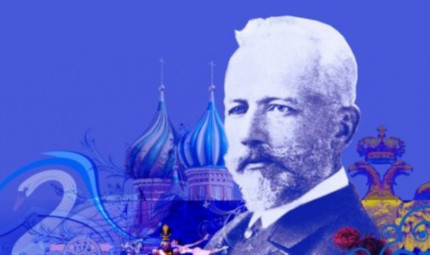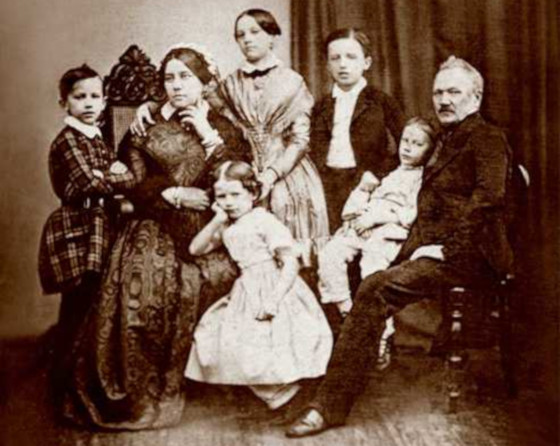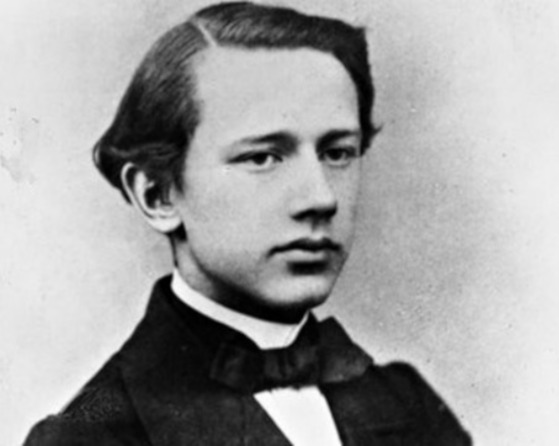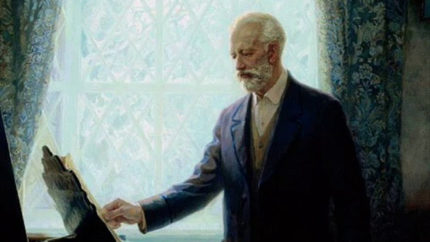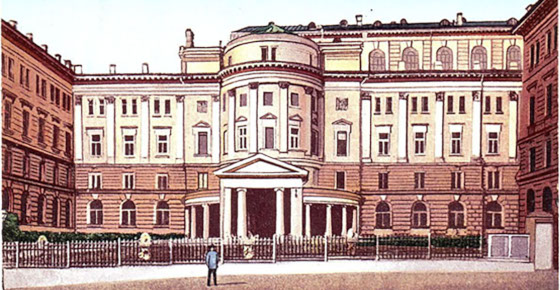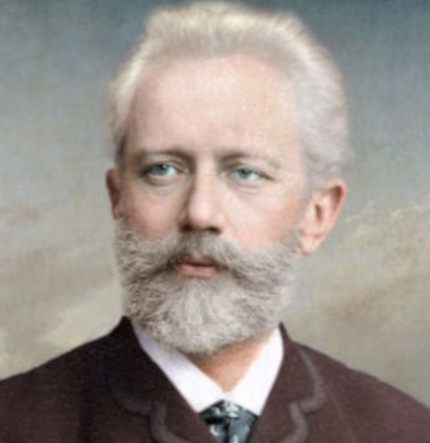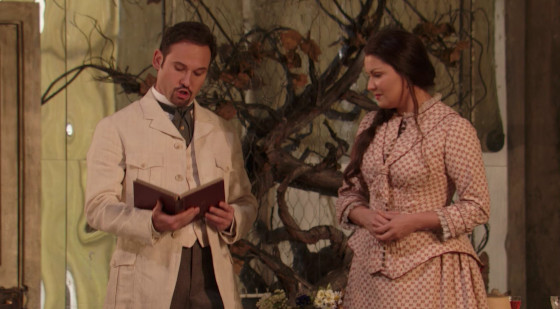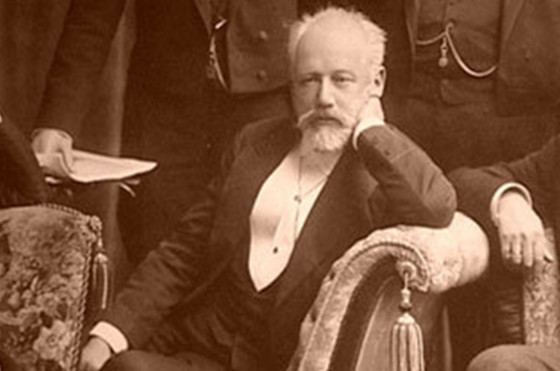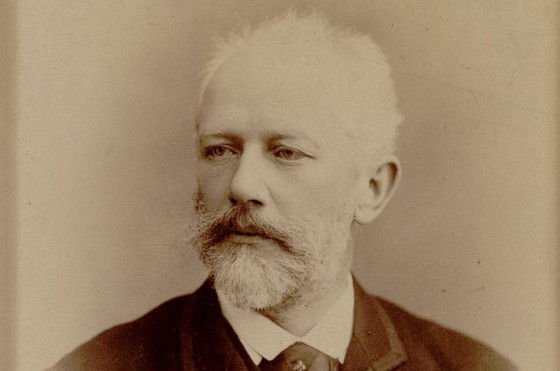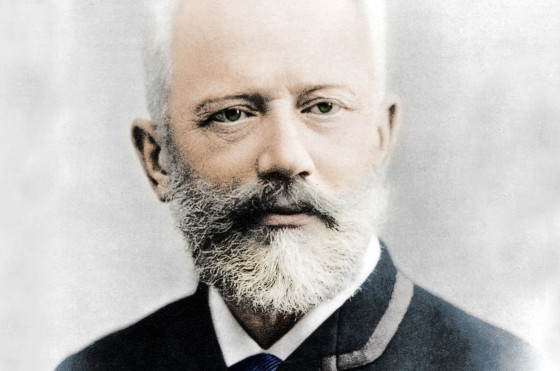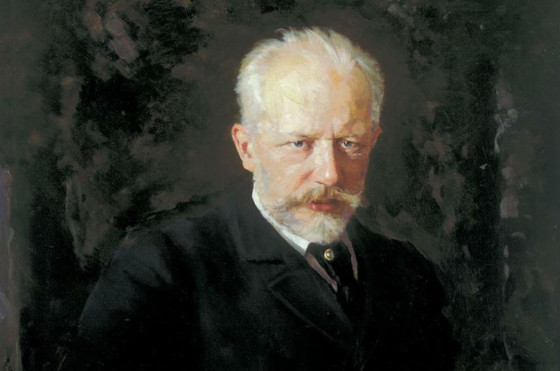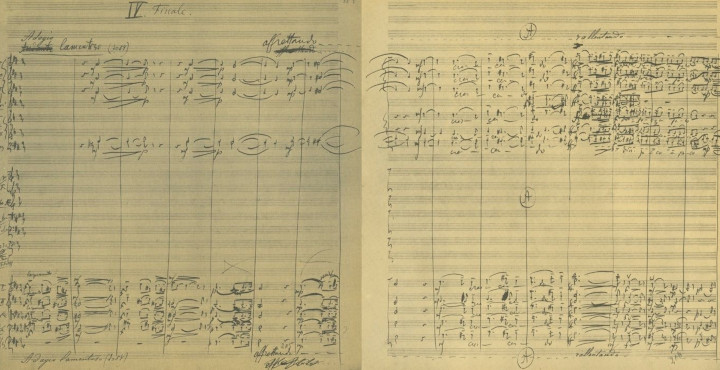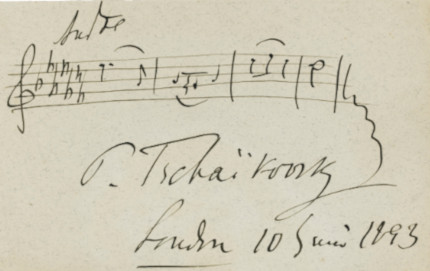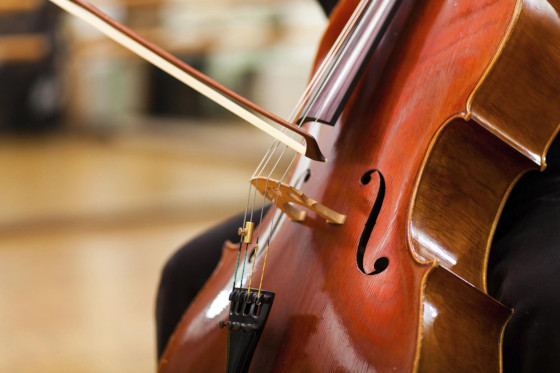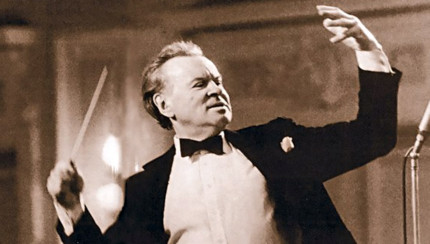| Edit | Map | Home | New Post | New Gallery |
Support
|
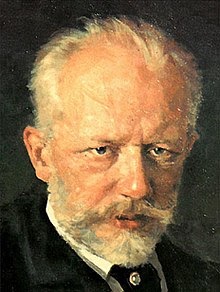 | |
One of the first places among the composers, whose works , according to inexorable statistics, are heard most often all over the world, is the name of Pyotr Ilyich Tchaikovsky. The monumental figure of this symphonic composer, patriot and citizen, who raised Russian musical art to an unattainable height , rises among the great artists of the 19th century. But at the same time, thanks to the high structure of his humanism and artistic ideals, amazing intelligibility, the availability of the embodiment of human feelings and thoughts, true nationality and democracy, Tchaikovsky's music has become an integral part of our life. In his work, Tchaikovsky created a musical language that is organically connected with the elements of the people , with the musical life and everyday life of the modern era. However, national narrow-mindedness was alien to Tchaikovsky. He believed that the value of any national culture increases as it is accessible to all peoples. Indeed, his music has become truly international, having won worldwide recognition . Peter Ilyich Tchaikovsky
One of the most lyrical composers, covered with worldwide fame. The main fiefdom in Russia that educates Russian musicians, the Moscow State Conservatory, is named after him. As well as the prestigious international competition of academic performers, the largest event on a global scale. Pyotr Ilyich Tchaikovsky is an outstanding Russian composer who devoted himself entirely to the world of inspiration and created such brilliant creations that they are the most performed works all over the world at the present time. Fascinating melodicism, brilliant mastery of compositional technique, as well as the ability to see light and harmony in any tragedy make Pyotr Ilyich the greatest creative person not only in the national, but in the entire world musical culture. Read a brief biography of Pyotr Ilyich Tchaikovsky and many interesting facts about the composer on our page. Brief biography of Tchaikovsky Pyotr Ilyich was born in the Russian outback - the village of Votkinsk near a small factory on May 7, 1840 in the family of a mining engineer. From birth, the boy absorbed the primordial spirit of the Russian intelligentsia. He spent his childhood in his native estate under the shadow of rural nature, among the picturesque sights and sounds of folk songs. All these impressions of the early years later took shape in an extraordinary love for the Motherland, its history and culture, its creative people.
Education for children in this large and friendly family sought to give the best. With them was always the governess Fanny Durbach, who, by the way, kept a lot of memories of little Petrush. From childhood, he was the most impressionable, sensitive, vulnerable, talented child with the finest nervous organization. Nanny called him "porcelain boy". Such a fragile, neurasthenic mental structure, such a sharp perception of life and sensitivity remained with him for the rest of his life. The house was filled with music, the parents of the future composer themselves loved to play music, they arranged musical evenings, there was a mechanical organ (orchestra) in the living room. A love for piano lessons was instilled in him by his beloved mother, and since the age of 5 he has been practicing quite regularly. Music lessons captured him entirely, but, frightened by Petya's unstable psyche, his parents sent him to study at the Imperial School of Law in St. Petersburg, believing that music was to his detriment. Tchaikovsky's biography says that at the end of his studies, in 1859, Pyotr Ilyich worked a little as a titular adviser in the Ministry of Justice, continuing to study music optionally, attending musical evenings and opera performances . By that time, he was already considered a good pianist and improviser. Thanks to the service, he first went abroad, going on a three-month tour with engineer Pisarev as an interpreter. Later, trips to Europe with tour performances or for recreation will become for him the most important part of his creative activity. The very opportunity to visit Europe, to join its cultural monuments excited him.
In 1862 he finally decided to connect his life with music. More precisely, for himself, he defined it as service to Music. He entered the newly opened St. Petersburg Conservatory, where he studied composition. There he meets Anton Rubinstein, who had a significant impact on his life. So shortly after graduating from the Tchaikovsky Conservatory (with a large silver medal, the highest award), Rubinstein invited him to Moscow - now to teach the basics of composition, harmony, music theory and orchestration. Pedagogical activity of Tchaikovsky It is worth noting that the Moscow Conservatory at that time (in 1866) was also just beginning to exist. In fact, at that time there was no domestic school teaching performing or composing skills. There were scattered translations of Western textbooks, separate classes of teachers who did not become concert musicians, but passed on their skills to students on a “do as I do” principle.
Tchaikovsky not only gave lectures, he wrote many training programs and manuals himself, he translated something from foreign sources. There are recordings of lectures by his student, the outstanding Russian composer Sergei Taneyev , from which one can judge the depth of knowledge, the ability to thoughtfully analyze music in terms of its structure, form, and elements. This is a titanic methodical work, which cannot be overestimated. Thanks to the efforts of Pyotr Ilyich, the education of Russian musicians, and especially composers, acquired a system, method, integrity. For a long time this part of his biography was omitted, it was considered an insignificant episode. This is due to Tchaikovsky's own statements that the pedagogical work burdens him, the students are stupid and ignorant. But all these words do not reflect the truth at all - the appearance of Tchaikovsky as a teacher in the then national musical culture predetermined for centuries (!) the emergence of the Russian composer school and unique, original, brilliant composers. This is a milestone in the domestic musical pedagogy.
It is noteworthy that Tchaikovsky made such a serious contribution to teaching and criticism, almost without reducing the time for his own compositions. This characterizes him as a man of monstrous capacity for work, a workaholic who threw every minute of his earthly stay on the altar of Music. Becoming a composer
His creative path was not strewn with roses. Early on, he was often sharply criticized for wanting to please the listener. Then, when he was already frequently in Europe and tried to combine the best of Western culture with traditional Russian features, it was difficult for him to meet the unanimity of the audience. His genius was truly appreciated only at the end. Tchaikovsky's early compositions date back to 1854. These were small plays - "Anastasia Waltz" and the romance "My genius, my angel, my friend ...". His student works of the Conservatory period already betray him as a master. One of the works is a program work for the drama by N.A. Ostrovsky "Thunderstorm". Subsequently, Pyotr Ilyich was connected with the famous playwright not only by tender friendship, but also by creative projects. So in 1873 the music for the fairy tale "The Snow Maiden" was written, later Nikolai Rimsky-Korsakov wrote an opera on the same theme . This time (the end of the 60s and the beginning of the 70s) was for him a creative search, most turned to folk art. At the same time, his collection “50 Russian Folk Songs for Piano in 4 Hands” was published approximately. The fabulous and mythical plot inherent in folklore was embodied in the opera Ondine. The first production of her was with some success, but by the end of the season she was removed from the theatrical repertoire. The composer destroyed the manuscript. Only some musical fragments were later transferred to Snegurochka. According to them, one can judge that by that time Pyotr Ilyich mastered the technique of coloristic writing. During the years of work at the conservatory, he wrote many works, among the iconic ones one can list 4 symphonies, 5 operas, the Swan Lake ballet that brought him worldwide fame , a piano concerto , 3 string quartets. Gradually, he came to understand that he should devote more time to composing music. Exhausting work at the conservatory required a lot of time and effort. And in 1878, Tchaikovsky held his last classes, but until the end of his life he kept correspondence with many students who later became venerable performers. In letters, he always remained their teacher and censor, gave recommendations. In 1877, the composer began work on " Eugene Onegin ". Absorbed by the composition, he somehow too hastily marries Antonina Milyukova. The marriage fell apart in just a few weeks. Everything about Tchaikovsky's young wife was annoying. And living together with her was a serious test for him. The mental anguish of this period led to a nervous breakdown and affected the music. Coincidentally, Eugene Onegin and the 4th symphony, written at that moment, became the pinnacles of his work. In 1878 he left to recover from the events that had taken place abroad. Then Nadezhda Filaretovna von Meck, a philanthropist and admirer of Pyotr Ilyich's work, began to help him. For a long 14 years they corresponded, but never met. Nevertheless, her moral and material assistance allowed Pyotr Ilyich to engage in creativity relatively freely, he could not look back at the publishers or the theater management. Since the 1880s, he has toured the world extensively. He makes personal acquaintance with such pillars of European and Russian culture as Leo Tolstoy, Edvard Grieg , Antonin Dvorak and many others. All his strong impressionability like a sponge absorbed the richness and diversity of the world. He is one of the few lucky ones who managed to win the recognition of the public, critics, and colleagues during his lifetime.
According to Tchaikovsky's biography, in recent years he was inexplicably drawn to his homeland, the composer wanted to live away from noisy cities, where anyone on the street could recognize him. He admitted that he was infinitely tired of the fuss surrounding him. Therefore, he chose small summer cottages near Moscow, where he rented an estate. The last house in which he lived in Klin, near Moscow, became a house-museum memorial reserve named after the composer. He died unexpectedly in 1893. Doctors diagnosed cholera, which developed in just a few days. Shortly before that, he was served a glass of unboiled water in one of the restaurants. Although there were other versions about the death of Tchaikovsky, no evidence was provided for them.
Interesting facts about Tchaikovsky
Characteristic features of Tchaikovsky's music Among musicologists, there is often an opinion that Tchaikovsky is a great opera, symphony, ballet composer, but his chamber or instrumental music is rather weak, not so interesting. They also note his “non-piano thinking”, which prevents him from creating something truly grandiose with small expressive means. This is an erroneous opinion. What are only "6 pieces for piano" worth, this is a whole performance for the performer - the performance of one actor, where he can show all his wonderful feeling and musicality. His melody is characterized by incredible intonation subtlety. Like Bach, he has encoded intonations in music. Their subtle overflows and play are his individual composer's traits.
Criticism of Tchaikovsky The composer's writing activity is considered fleeting. However, despite the short period that Pyotr Ilyich devoted to literary experience, his articles in the journals Russkiye Vedomosti and the newspaper Sovremennaya Letopis were of paramount importance in the cultural life of Russia, as they helped shape the opinion and vision of music for the broad masses. His own high moral and aesthetic ideals, to which he consciously aspired all his life, forced him to reflect on the role of art in the life of society and man. He felt an urgent need to share similar thoughts with his compatriots. In many ways, his views on music then determined the views of his contemporaries. The last publications written by Pyotr Ilyich on a business trip in Bavaria were reports on the Wagner concerts in 1876. By the end of it, Tchaikovsky had already become a symbol of Russian history, the Russian intelligentsia, the Russian spirit.
Not Tchaikovsky Tchaikovsky
Pyotr Ilyich, like no other composer, has works that officially have 2 editions - one by the author, the other - with someone else's edits. Moreover, the changes made are significant. It is known that today, due to the established performing tradition, in some works, Tchaikovsky is most often heard not quite. For example, "Variations on a Rococo Theme" for orchestra and cello solo. There are not so many concert works for traditionally "orchestral" instruments, any musician-instrumentalist dreams of showing the beauty of the sound of his instrument separately from the orchestra. In 1876-77 the Variations were born. It was a long-awaited gift for the Moscow cellist Wilhelm Fitzehagen, a close friend of the composer, and also the first cello of the Russian Musical Society. He participated in all the premieres of Tchaikovsky's music as a soloist, performer of the first part. Chief trusted musician of Peter Ilyich. The premiere of Variations took place in November 1877, without Tchaikovsky, who at that moment was abroad for rehearsals and performances of his other compositions. After the premiere, Fitzenhagen took the sheet music to Tchaikovsky's publisher Pyotr Jurgenson with his own corrections. So he completely removed 1 of 8 variations, swapped some of them and changed the code. In this form, the notes went to print.
The changes, in the opinion of the "editor" Fitzenhagen, allowed the most virtuoso part of the work to be put in the final, where he could show off his performing skills. Pyotr Ilyich then toured a lot, he did not answer the letters of the "editor". But not because he agreed with the editors. And soon there was no one to even object - Nikolai Vasilyevich died. A few more years later - and Pyotr Tchaikovsky himself. For many years the editorial confusion remained unknown. During this time, the artists got used to performing the edited version. It is in this version that, starting in 1962, "Variations on a Rococo Theme" become a mandatory piece for the 3rd round of the competition. Tchaikovsky. The last 30 bars are technically very difficult for all performers, it is almost impossible to play them cleanly. But the long practice of performing this particular musical version created a kind of aura of virtuosity for the work, a special complexity that is not available to every performer. Now, if someone wishes to perform it in the author's version, he will immediately be recognized as a coward or a little technical.
Interpretations and modern adaptations of Tchaikovsky's works
In contemporary performing arts, Mikhail Pletnev is considered the best performer of Tchaikovsky's music. In the 20th century, one of the brightest and most accurate interpretations was considered the technically perfect and stylistically flawless game of Svyatoslav Richter. Among the symphonic performances, interpretations by conductors Leonard Bernstein, Evgeny Mravinsky, Evgeny Svetlanov stand out. Tchaikovsky's romance lyrics are extremely attractive to opera and chamber artists. Such diverse vocalists as Sergei Lemeshev, Dmitry Hvorostovsky, Galina Vishnevskaya, each with their own unique singing style, brilliantly performed Tchaikovsky's subtle, full of incredible emotional richness romances. There are also a huge number of arrangements of the most famous Tchaikovsky themes on electronic instruments and with special effects:
In 1945, Vera Mukhina was solemnly commissioned to make a monument to Pyotr Ilyich Tchaikovsky . The idea of ??the sculpture was not immediately realized, several times it had to be completely redone. As a result, the author did not live to see the opening of the monument, it was her last work. But in the final version, it is a symbol of creative inspiration. Its location is also symbolic - in the courtyard of the Moscow Conservatory, where crowds of hurrying students of music faculties and tourists pass daily, wishing to join the source of Russian music.
As regards the Russian element in my music in general, i.e. techniques related to folk song in melody and harmony, this is due to the fact that I grew up in the wilderness, from my earliest childhood I was imbued with the inexplicable beauty of the characteristic features of Russian folk music, which I am passionate about. I love the Russian element in all its manifestations, that, in a word, I am Russian in the fullest sense of the word. |
Author: Sonya Version: 1 Language: English Views: 0
|
Short link: https://www.sponsorschoose.org/a233
Short link to this version: https://www.sponsorschoose.org/n261
Created by Sonya at 2023-06-30 06:52:20
Last modified by Sonya at 2023-06-30 07:15:48
|
